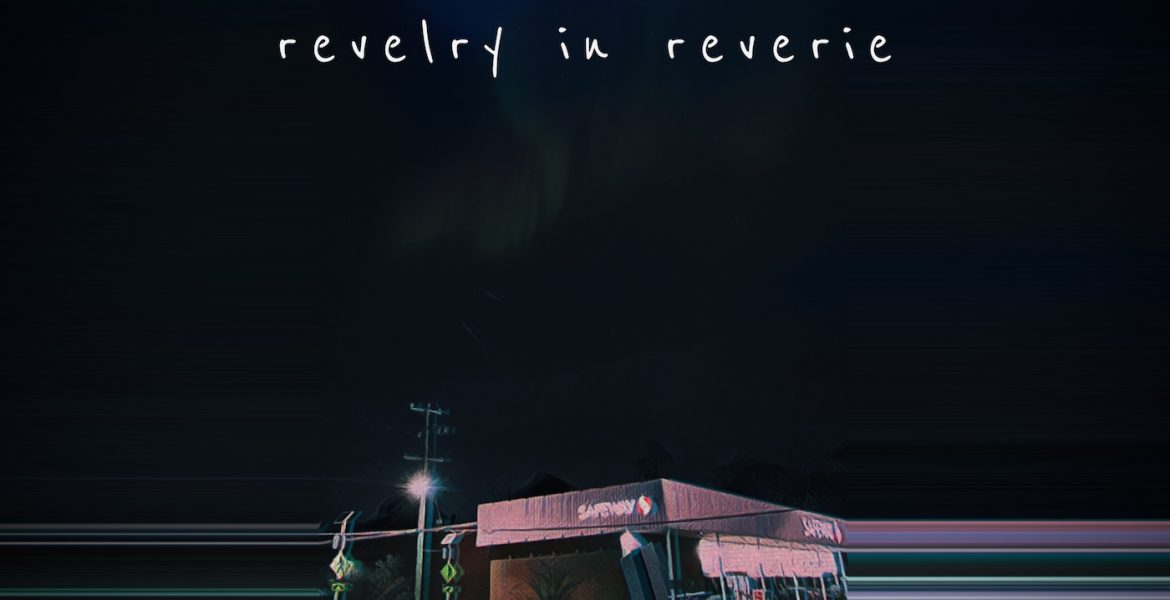deadwater’s revelry in reverie Is Basement-Built Grunge Brilliance
The basement may be where many musical dreams are born—but in revelry in reverie, deadwater turns that basement into a cathedral of distortion, desperation, and dark poetry. The Virginia-based indie rocker delivers his third album as a blistering love letter to ’90s grunge, DIY ethos, and the ghosts of underground music past, present, and possibly future.
Let’s get this out of the way: revelry in reverie sounds way too good to be made in a basement with GarageBand. But that’s the magic of deadwater. There’s a haunted, handmade quality here that gives these eleven tracks their raw beauty. Like Nirvana’s Bleach on an existential bender or early Placebo trapped in a Lynchian fever dream, deadwater fuses angst with atmosphere, filth with feeling.
The opening track “Neon Black” explodes like a Molotov cocktail into your headphones—gritty guitars, thunderous drums, and lyrics delivered with the disaffected snarl of someone who’s been chewing on their own regrets for far too long. “Write it in neon black,” he commands. It’s an oxymoron that sets the tone for the album: vibrant darkness, loud silence, clarity through distortion.
Then comes “Dying Breed,” a somber acoustic track that blossoms into electric melancholy. It evokes Jar of Flies era Alice in Chains, complete with surrealist lyrics that bounce between the poetic and the plainspoken (“Benadryl for my throat / Careful not to drop the soap”). Like much of the album, it lives in a liminal space—both sincere and satirical, grounded and slipping away.
“Spit it Out” thrashes with a punkish tempo and a Smashing Pumpkins-meets-Fugazi vibe. But it’s “Siren Sound” that might be the album’s emotional high point—or low, depending on how deep you’re willing to go. It’s a heartbreak song masquerading as a monster movie, with one of deadwater’s most affecting vocal performances. “I let you down, I let you down / I’m the storm, the siren sound,” he confesses over a swirling sea of fuzzed-out guitars. If this album were a film, this would be the tragic montage scene.
Elsewhere, “She Don’t Care” and “Mexico (Hey Now)” showcase deadwater’s range. The former is a garage-rock anthem with echoes of The Offspring’s “Self Esteem,” while the latter morphs from a sun-drenched acoustic ditty into a shoegaze maelstrom worthy of My Bloody Valentine. The chorus’s repeated “Hey now, hey now” isn’t just a hook—it’s a ghostly echo of a relationship dissolving in real time.
The album’s second half takes a darker, more introspective turn. “Tuesday Evening” leans Depeche Mode in its cold emotional restraint. “The Hell Song” begins like a dusty voicemail from hell and shifts into an unexpectedly catchy rock number. There’s even a touch of Foo Fighters polish here—though deadwater never lets anything feel too clean.
“Voices” and “Darkest Nights” double down on deadwater’s fascination with duality—clean versus dirty, light versus void. They’re songs about slipping seams, cracked reflections, and whispered screams from deep wells. It’s catharsis disguised as collapse.
The final track, “Comin’ Back,” feels like a horror movie end credits scene—loud, unrelenting, and laced with tension. It’s a perfect sendoff: a feedback-drenched reminder that deadwater isn’t just coming back—he never really left.
With revelry in reverie, deadwater cements his status as one of the most compelling underground voices in the modern grunge revival. It’s not polished. It’s not perfect. But that’s the point. This is basement rock at its best—raw, real, and absolutely ready to burn your speakers to the ground.
For fans of: Nirvana, Placebo, Alice in Chains, early Smashing Pumpkins, basement therapy sessions that become anthems.
INSTAGRAM


